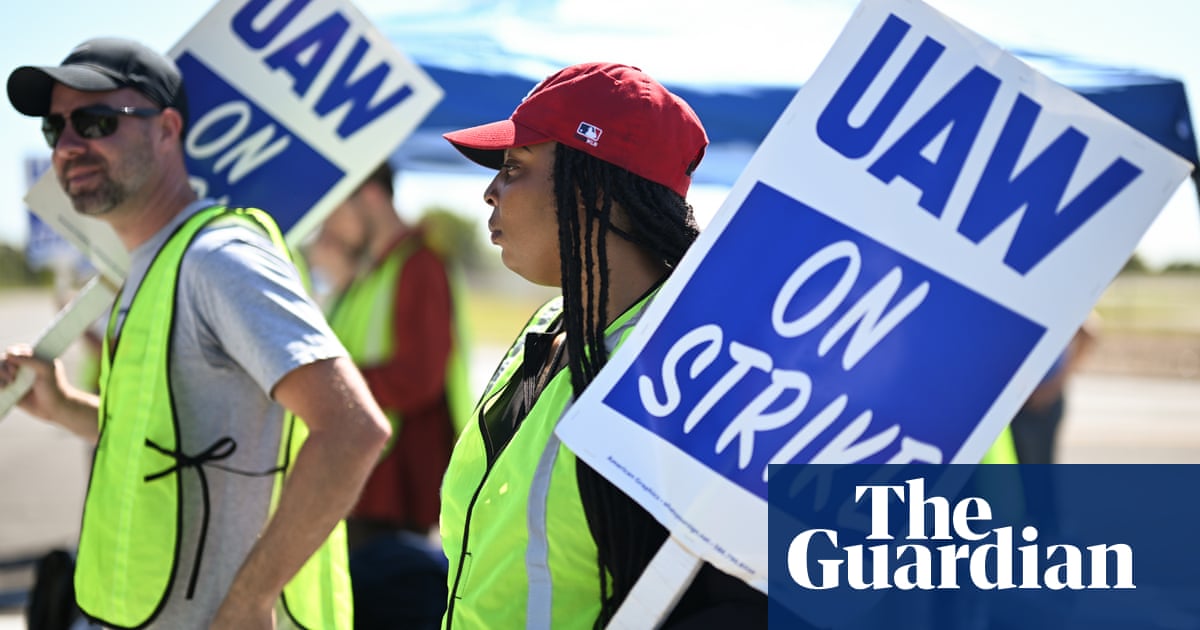
Rachel Reeves is clear about the motivation driving Wednesday’s budget, which she believes will be a transformational moment for Britain – her childhood growing up in south London under the Tories.
“For me, this is really personal,” she says. “I joined the Labour party in the first place because of the state of schools in the 80s and 90s. When I was at secondary school, our sixth form was a couple of prefab huts in the playground and our school library was turned into a classroom because there were more students than space.
“I felt very strongly that the governments of Thatcher and Major didn’t care very much about schools like mine, communities like mine and the kids I went to school with. I wanted to do something about it and I did so by joining the Labour party … Being able to rebuild schools is fulfilling what I came into politics to do – to ensure children from ordinary backgrounds get a good chance in life.”
Even her cabinet colleagues have struggled for face time with the country’s first female chancellor over the last three months. So when asked whether she has been able to see as much as she would like of her young family since the general election, she laughs ruefully.
“At the moment,” she says, “I’m in Washington, so you can draw your own conclusions! It is half-term next week and I will be delivering the budget. Maybe I get more points for being a good chancellor than being a good mother right now.”
Reeves knows the short-term price she is paying, but also the enormity of what she is doing. She compares what she hopes will be the effects of the budget with other huge moments in her party’s history, and turning points for the country: the arrival of the Attlee government of 1945 which created the NHS; Harold Wilson and the “white heat of technology” in 1964; and the drive and ambition of New Labour to rebuild public services after 1997.
Inevitably, given the mind-boggling sums involved – she will announce moves to raise around £40bn from tax rises and spending cuts, as well as changes to fiscal rules that will give room for up to £50bn of new long-term investment – much coverage ahead of the budget has centred on which taxes will go up, who will be hit hardest, possible adverse market reactions to more borrowing, and which promises in Labour’s manifesto will be broken in letter or spirit.
She doesn’t dodge the fact that it will be tough for many, describing what will be unveiled as the product of a twin-track strategy that is desperately needed to break free of 14 years of Tory short-termism and mismanagement. “By making the difficult decisions around tax and spending to bring the current budget into balance, but then to have the space to make these capital investments to rebuild our schools and hospitals, and leverage in private investment, that is going to be the big change,” she says.
Those “difficult decisions” will involve panning business with a massive hike in employer national insurance contributions that will bring in a hefty £20bn. Reeves is also likely to extend years of Tory freezes on tax thresholds for up to another two years beyond 2028, dragging hundreds of thousands more people into paying tax, and even more into higher rates as their pay rises.
Asked whether this meant breaking Labour’s manifesto commitments, at least in spirit (it promised not to raise national insurance or income tax), she swerves, and attempts to turn the argument completely on its head. “The day after the budget, people are not going to see those main taxes that they pay – income tax, national insurance, VAT – going up … We promised at the election that we wouldn’t put up those taxes for working people. One of the things that has eroded trust in politics and politicians has been a failure to stick to manifesto commitments.
“We don’t want to be that sort of government; I don’t want to be that sort of chancellor. We made a commitment that we were not going to put up those key taxes paid by working people, and that is what I am determined to do on Wednesday.”
That will not convince many. But Reeves and Starmer seem to think they have built themselves some leeway with the public, some sort of permission to bend their own rules, because they have argued so incessantly that the Tories left the public finances in an even worse position than they had believed was the case before the election. Reeves suggests she has had to do what she is doing because it will be in the public interest. Hard but fair. Bending a promise or two, not breaking them.
“Everyone knows with the state of the public finances and the public services I have inherited that a responsible chancellor has got to make tough decisions on spending, welfare and tax to put our public finances on a sustainable footing, but I will do it in a way that people see I have done everything in my power to protect the living standards of working people.”
While tax rises will be the story of budget day, the really big change could turn out to be creating space for more long-term investment. If it works, it stands the chance of being transformational. Reeves describes the potential as “really exciting”.
“The reason we changed the second of our fiscal rules is because otherwise we are stuck on a path with investment in our economy declining … having inherited a plan from the previous government where public sector capital investment would be falling during the course of this parliament … that would mean schools and hospitals not being built.
“It would mean not taking massive opportunities to grow our economy in digital and in the energy sector. We would miss out on that opportunity and jobs would go elsewhere.
“I am not happy with that path of decline, and the solution to it is investment. So if the Tories oppose our new fiscal rules next week, they would be saying they are happy with that path of decline.”
Two weeks ago Reeves and the government announced £21bn of investment in carbon capture and storage. “That is only possible because we are changing the way that we measure debt and take into account assets as well as liabilities. The second type of investment will be in the public realm. The number of schools that have been affected by the Raac concrete … £1.4bn for school rebuilding, which will mean 50 schools a year will be rebuilt … It would not have been possible to make these investments without changing the fiscal rules.”
She may be under the most intense pressure but Reeves seems to sense a possible place in history, having only been chancellor since early July. “This is only the fourth time that Labour has gone from opposition into government. In 1945, we rebuilt after the war; in 1964, we rebuilt with the white heat of technology; and in 1997, we rebuilt our public services. We need to do all of that now.
“This is a new settlement on Wednesday to rebuild our country and seize the massive opportunities in technology and energy that are out there.
“There is a global race on for those jobs and we need to seize them for Britain. If we can unlock that investment, public and private, then we can do great things as a country again.”












